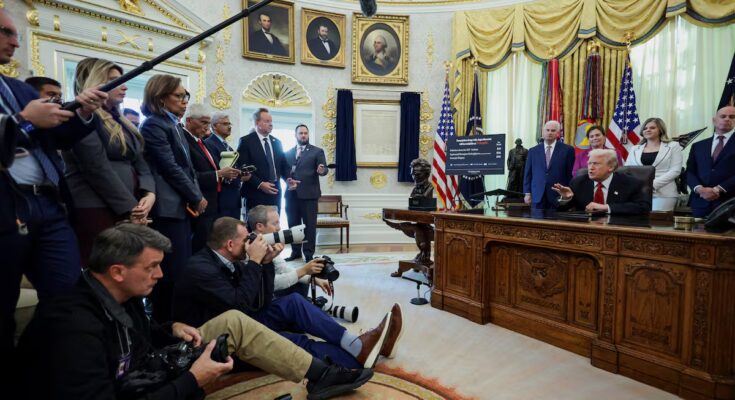Seven months after unleashing the largest trade war in recent history by imposing tariffs on the vast majority of countries, US President Donald Trump is starting to rectify some of his decisions. If on Friday it reached an agreement with Switzerland to reduce the average tariff from 39% to 15%, in exchange for millionaire investments by Swiss pharmaceutical laboratories (the largest are Roche and Novartis) to create production plants in the United States, and another with Argentina, which significantly expands the access of Argentine meat to the US market (in exchange it also obtains privileged access to lithium or soy), at noon on Saturday it was the government of Ecuador to confirm that the United States will proceed with the elimination of the 15% tariff on 105 goods.
“Many agricultural and natural products, especially those that are not significantly produced in the US market, will no longer be subject to reciprocal tariffs starting November 13, 2025. These include: coffee, cocoa, pineapple, mango, pitahaya, other tropical fruits, fruit juices, spices, bananas, hearts of palm, plantains, oranges, tomatoes and others,” the Ministry of Manufacturing, Foreign Trade and Commerce highlighted in a statement. Investments.
A decision similar to that adopted for beef purchases in Brazil. The imposition of a tariff on Brazilian meat purchases coincided with a substantial reduction in the cattle herd in the United States, causing unprecedented increases in costs. In the United States, food prices increased by 3% annually until September, the highest rate since January, with particularly pronounced increases such as those of coffee (18.9% in twelve months), ground meat (12.9%) or bananas (6.9%). Agreements with Argentina, Brazil or Ecuador seek to reduce import bills and lower the price of basic foodstuffs.
As happened with the rest of the countries, the imposition of tariffs sought to reduce the large trade deficit (the negative difference between exports and imports of goods) of the United States, the largest in the world, which reached $1.2 trillion at the end of 2024. But Trump did not consider that the imposition of these tariffs could indirectly make purchases of products that are not grown in the United States more expensive and that this would have a direct impact on the pockets of American citizens through inflation.



